|
2016 SUMMER OLYMPİCS RİO 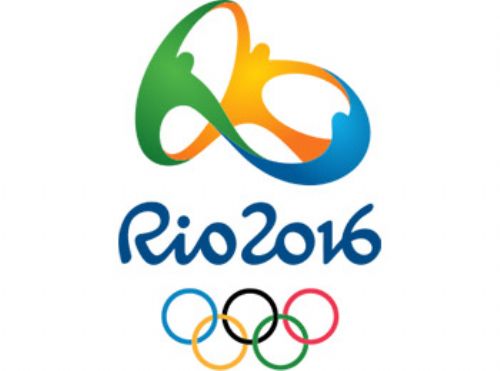
"Rio 2016" Redirects Here. For The 2016 Paralympic
Games, See 2016 Summer Paralympics. 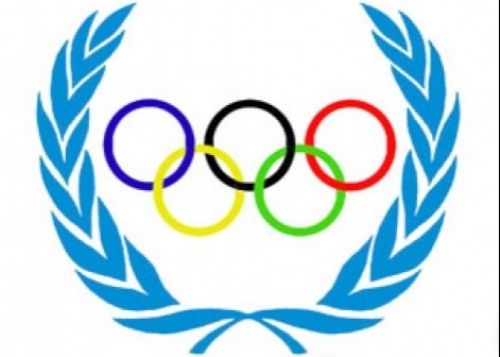
The 2016 Summer Olympics (Portuguese: Jogos Olímpicos de
Verão de 2016), officially
known as the Games
of the XXXI Olympiad and commonly known as Rio 2016, is a major
international multi-sport event being held in Rio de
Janeiro, Brazil, from 5 August to 21 August 2016.
More
than 11,000 athletes from 207 National Olympic Committees, including
first time entrants Kosovo, South Sudan,
and theRefugee
Olympic Team, are taking part. 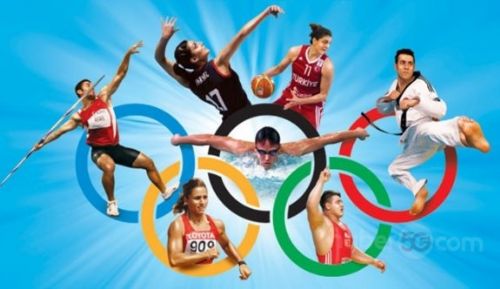
With
306 sets of medals, the games features 28 Olympic
sports, including rugby sevens and golf, which were added to
the Olympic program in 2009. These sporting events are taking place at 33
venues in the host city, and at five in São Paulo, Belo
Horizonte, Salvador, Brasília,
and Manaus. 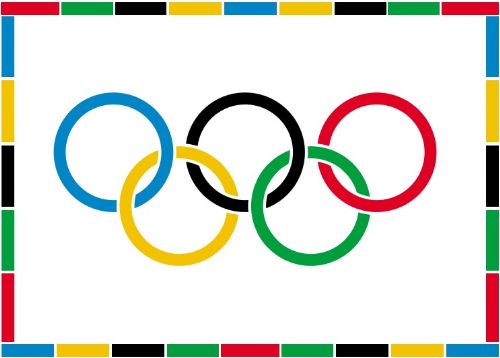
These are the first Summer Olympic Games under the IOC
presidency of Thomas Bach.
The
host city Rio de Janeiro was announced at the 121st IOC Session in Copenhagen, Denmark,
on 2 October 2009. Rio became the first South American city to host the Summer
Olympics. These are the first games to be held in a Portuguese-speaking country,
the first to be held entirely in winter, the first since 1968 to be held in Latin America, and
the first since 2000 to be held in the Southern Hemisphere. 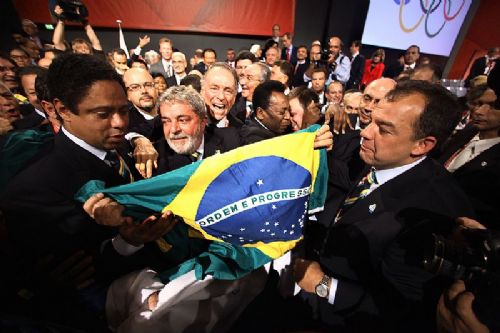
The
lead-up to these Games was marked by controversies,
including the instability of the country's federal government; health and
safety concerns surrounding the Zika virus and
significant pollution in the Guanabara Bay;
and a doping scandal involvingRussia, which has affected
the participation of its athletes in the Games. 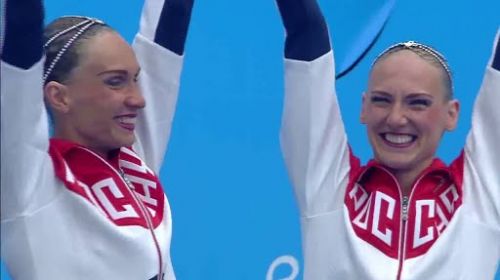
BİDDİNG PROCESS
The bidding process for the 2016 Olympic Games was officially
launched on 16 May 2007.
The
first step for each city was to submit an initial application to the International Olympic Committee (IOC)
by 13 September 2007, confirming their intention to bid. Completed official bid
files, containing answers to a 25-question IOC form, were to be submitted by
each applicant city by 14 January 2008. Four candidate cities were chosen for
the shortlist on 4 June 2008: Chicago, Madrid, Rio de
Janeiro and Tokyo, which hosted the 1964 Summer Olympics and will host
again in 2020. The IOC did not promote Doha to the
candidature phase, despite scoring higher than selected candidate city Rio de
Janeiro, because of their intent of hosting the Olympics in October, outside of
the IOC's sporting calendar. Prague and Baku also failed to
make the cut. 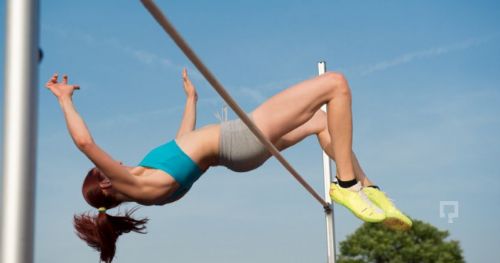
Nawal El Moutawakel of Morocco headed the
10-member Evaluation Commission, having also chaired the evaluation commission
for the 2012 Summer Olympics bids.
The
commission made on-site inspections in the second quarter of 2009. They issued
a comprehensive technical appraisal for IOC members on 2 September, one month
before elections.[6]
Many
restrictions are in place designed to prevent bidding cities from communicating
with or influencing directly the 115 voting members. Cities may not invite any
IOC member to visit nor may they send anything that could be construed as a
gift. 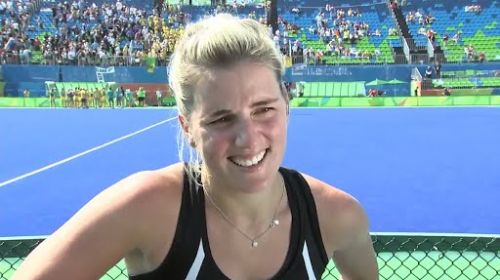
Nonetheless, bidding cities invest large sums in their PR and media
programs in an attempt to indirectly influence the IOC members by garnering
domestic support, support from sports media and general international media.
Ultimately,
you are communicating with just 115 people and each one has influencers and
pressure groups but you are still speaking to no more than about 1,500 people,
perhaps 5,000 in the broadest sense. It is not just about getting ads out there
but it is about a targeted and very carefully planned campaign. 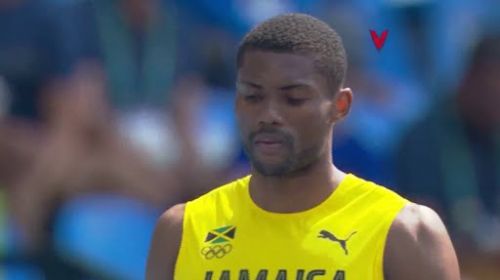
— Jon Tibbs, a consultant on the Tokyo bid
The
final voting was held on 2 October 2009, in Copenhagen with Madrid and Rio de
Janeiro perceived as favourites to land the games. Chicago and Tokyo were
eliminated after the first and second rounds of voting, respectively, while Rio
de Janeiro took a significant lead over Madrid heading into the final round.
The lead held and Rio de Janeiro was announced as host of 2016 Summer Olympics.
Failed bids from other South American cities include Buenos Aires (1936, 1956, 1968, 2004) and Brasília,
which withdrew during the 2000 Summer Olympic bidding process. 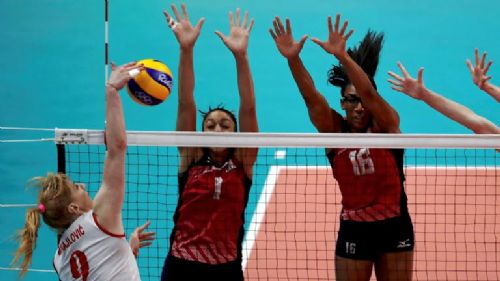
Development And Preparation
On
26 June 2011, it was reported on Around The Rings.com
that
Roderlei Generali, the COO of the Rio de Janeiro Organizing Committee for the
Olympic Games, resigned just one year after taking the job at ROOC. This comes
just five months after CCO Flávio Pestana quit for personal reasons. Pestana withdrew later during the 2012 Summer Paralympics. Renato Ciuchin was then appointed as
COO. 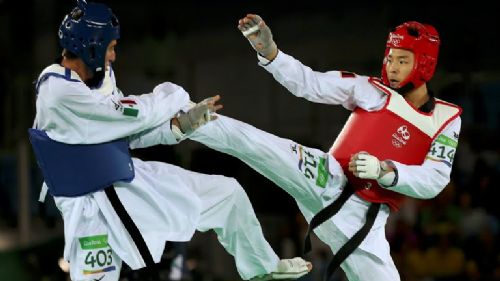
Venues and
infrastructure
Main article: Venues of the
2016 Summer Olympics and Paralympics
Events will take place at eighteen existing venues (eight
of which require some redevelopment), nine new venues constructed for the
Summer Games, and seven temporary venues which will be removed following the
games. 
Each event will be held in one of four geographically
segregated Olympic clusters: Barra, Copacabana, Deodoro, andMaracanã. The same was done for the 2007 Pan American Games. Several of the venues will be located
at the Barra Cluster Olympic Park.
Athletes could access their venues in shorter than 10
minutes and about 75 percent could do so in less than 25 minutes. Of the 34
competition locales, eight have undergone permanent works, seven are limited,
and nine are perpetual legacy venues. 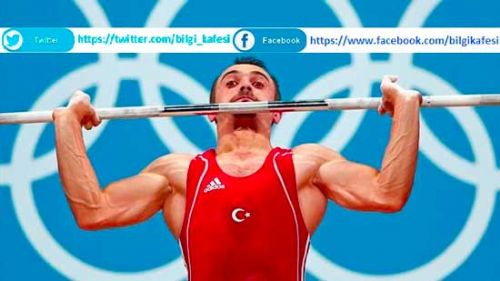
The largest venue at the games in terms of seating
capacity is the Maracanã Stadium, officially known as Jornalista
Mário Filho Stadium, which can hold 74,738 spectators and will serve as the
official Olympic
Stadium, hosting the opening and closing ceremonies as well as football
finals.
The second largest stadium is Estádio Nilton Santos,Botafogo club home field, which can hold 60,000
spectators and will host all track and field events. In addition, five venues
outside Rio de Janeiro will host football events, in the cities of Brasília, Belo
Horizonte, Manaus, Salvador and São Paulo.
The athletes' village is said to be the largest in
Olympic history. Fittings will include about 80,000 chairs, 70,000 tables,
29,000 mattresses, 60,000 clothes hangers, 6,000 television sets and 10,000
smartphones. 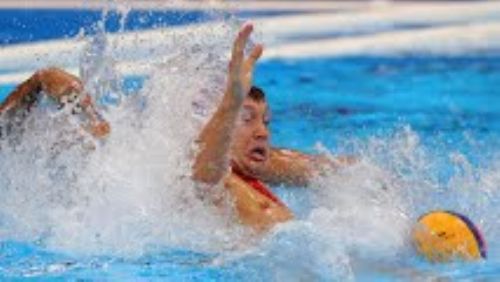
OLYMPİC PARK
Main
article: Barra Olympic Park
The Barra Olympic Park is a cluster of nine sporting
venues in Barra
da Tijuca, in the west zone of Rio de Janeiro, Brazil that will be used for
the 2016 Summer Olympics and the 2016 Summer Paralympics. The site of the
Olympic Park was formerly occupied by the Autódromo Internacional Nelson
Piquet, also known as Jacarepaguá.
The nine venues to be used within the Olympic Park are: Carioca
Arena 1: basketball (capacity: 16,000);Carioca
Arena 2: wrestling, judo (capacity: 10,000); Carioca
Arena 3: fencing, taekwondo (capacity: 10,000); Future Arena:
handball (capacity: 12,000); Maria Lenk Aquatics Centre: diving,
synchronised swimming, water polo (capacity: 5,000); Olympic Aquatics Stadium:
swimming, water polo play-offs (capacity: 15,000); Olympic Tennis Centre:
tennis (capacity: 10,000 Main Court); Rio Olympic
Arena: gymnastics (capacity: 12,000); and Rio Olympic Velodrome: track cycling
(capacity: 5,000). 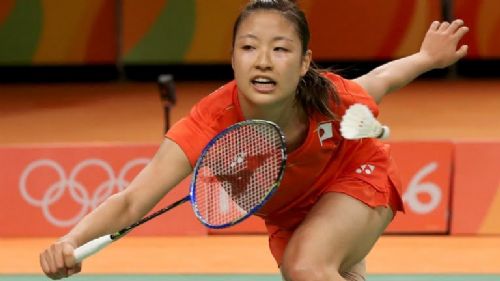
FOOTBALL
Main article: Football
at the 2016 Summer Olympics
As well as the Estádio Olímpico João Havelange and
Maracanã and in Rio de Janeiro, some football games will take place at 5 venues
in the cities of São Paulo, Belo
Horizonte, Salvador, Brasília and
Manaus. 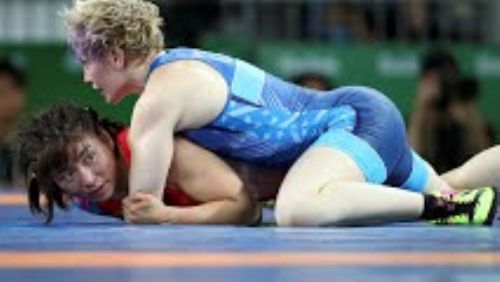
URBAN RENOVATİON
Main article: Port of Rio de
Janeiro
Rio's historical downtown is undergoing a large-scale urban waterfront revitalization
project called Porto Maravilha.
It covers 5 km2 (1.9 sq mi)
in area. The project aims to redevelop the port area, increasing the city
center's attractiveness and enhancing Rio's competitive position in the global
economy. The urban renovation involves: 700 km (430 mi) of public
networks for water supply, sanitation, drainage, electricity, gas and telecom;
4 km (2.5 mi) of tunnels; 70 km (43 mi) of roads;
650 km2 (250 sq mi)
of sidewalks; 17 km (11 mi) of bike path; 15,000 trees; three
sanitation treatment plants. As part of this renovation, a new tram will be
built and will run from the Santos Dumont Airport to Rodoviária Novo Rio. It
was due to open in April 2016.
The
Games require more than 200 kilometres of security fencing. To store material,
Rio 2016 is using two warehouses. A 15,000 square metre warehouse in Barra da
Tijuca in western Rio is being used to assemble and supply the furniture and
fittings for the Olympic Village. A second warehouse of 90,000 square metres,
located in Duque de Caxias near the roads that provide access to the venues,
contains all the equipment needed for the sporting events. 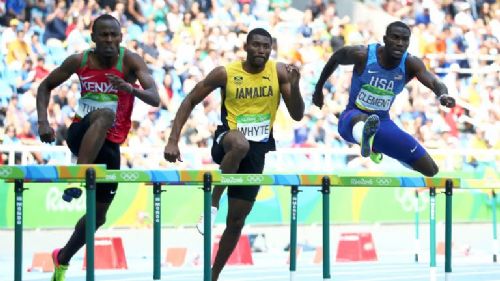
Technology
The Rio
Olympic Games will have brand-new robotic technology created by Mark Roberts
Motion Control to broaden the reach of photographers at multiple venues. 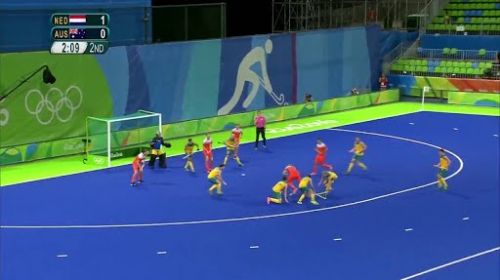
Medals
The
medal design was unveiled on 15 June 2016; they are produced by the Casa da Moeda do Brasil. The bronze and silver
medals contain 30% recycled materials, while the gold medals were produced
using gold that had been mined and extracted using means that met a series of
sustainability criteria, such as being extracted without the use of mercury.
The medals feature a wreath design, while the obverse, as is traditional,
features Nike,
the Greek goddess of victory. They are accompanied by a wooden carrying box,
while medallists also receive a trophy of the Games' emblem. 
Sustainability
As an aspect of its original bid, Rio's organizing committee
committed to a focus on sustainability and environmental protection as a theme of these Games, going on to dub
them a "Green Games for a Blue Planet"
Organizers
intended to, as legacy projects, introduce a wider array of public transport
options, upgrade the infrastructure of the favelas to
provide improved transport and access to utilities, and upgrade Rio's sewer
system in order to remediate the level of pollution in the Guanabara Bay.
Organizers
also announced plans to plant 24 million seedlings to offset the expected
carbon emissions of the Games. However, some of these projects have been met
with delays or faced with economic shortfalls, which led some critics to
believe that Rio would not be able to accomplish these goals. 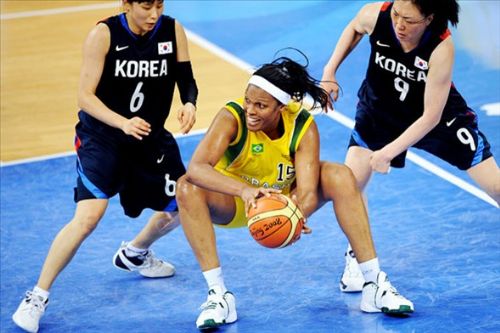
The focus on environmental protection also influenced the
implementation of certain Olympic protocols: the
Olympic cauldron was designed to be smaller than previous iterations in order
to reduce emissions, and utilizes a kinetic sculpture to
enhance its appearance in lieu of a larger body of flames.[27] The
bronze and silver medals, as well as ribbons on all medals, incorporate
recycled materials, and unlike previous Games, athletes are not presented
with flowers during medal ceremonies, as had been traditionally done at prior
Olympics (although flowers are still used as part of the staging of medal
presentations). Organizers considered the practice to be in conflict with the
focus on sustainability, stating that these flowers were often thrown away, and
"would struggle to survive in the tropical Brazilian climate" if
kept. The podiums were also designed so that their materials could be recycled
to make furniture. The Future
Arena, host of handball competitions, was designed as a modular
temporary venue whose components can be reconstructed to build schools.
Portions
of the opening ceremony were
also dedicated to the issue of climate
change. 
Torch relay
Main article: 2016
Summer Olympics torch relay
The
Olympic flame was lit at the temple of Hera in Olympia on 21
April 2016, the traditional start of the Greek phase of the torch relay. On 27
April the flame was handed over to the Brazilian organizers at a ceremony at
thePanathenaic
Stadium in Athens.
A brief stop was made in Switzerland to visit the IOC headquarters and the Olympic Museum in Lausanne as well
as the United Nations Office at Geneva.[33]
The
torch relay began its Brazilian journey on 3 May at the capital Brasília. The
torch relay visited more than 300 Brazilian cities (including all the 26 states
capitals and the Brazilian Federal District), with the last part
held in the city of Rio de Janeiro, lighting
the cauldron during the 2016 Summer Olympics opening ceremony on 5
August. 
Ticketing
The ticket prices were announced on 16 September 2014, all of
which will be sold in Brazilian reais (BRL). A
total of 7.5 million tickets will be sold; 200,000 tickets less compared to the 2012
Summer Olympics, because the size of many arenas is smaller. Ticket
prices range from BRL 40 for many events to BRL 4,600 for the most expensive
seats at the opening ceremony. About 3.8 million of these tickets will be
available for BRL 70 or less.[35][36] The
street events such as road cycling, race walk and the marathon can be watched
along their routes for free.
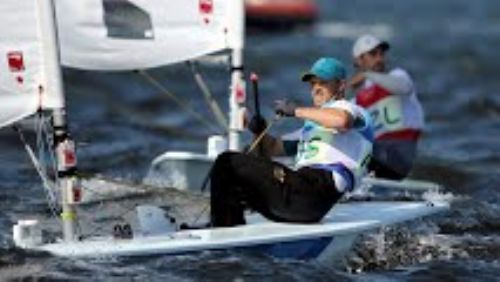
Opening ceremony
Main articles: 2016
Summer Olympics opening ceremony and 2016
Summer Olympics Parade of Nations
The opening ceremony took place in the Maracanã Stadium on 5 August 2016, and was directed by Fernando Meirelles, Daniela Thomas and Andrucha Waddington.
The ceremony highlighted aspects of
Brazilian history and culture, and featured a segment narrated by Fernanda Montenegro and Judi Dench with
an appeal to environmental
conservation and
preventing global warming. The ceremony also featured the
inaugural presentation of the Olympic Laurel, an honour bestowed by the IOC
to those that have made "significant achievements in education, culture,
development and peace through sport", to Kipchoge "Kip" Keino.[40] The Games were officially opened by
Acting President of Brazil Michel Temer.
The Olympic cauldron was lit by Vanderlei
Cordeiro de Lima, the Men's marathon bronze medallist at the 2004 Summer Olympics who was also awarded the Pierre de
Coubertin medal for
sportsmanship by the IOC after being attacked by a spectator and losing his
lead. The cauldron was originally expected to be lit by Brazilian footballer Pelé, but he declined to participate due to
health problems. 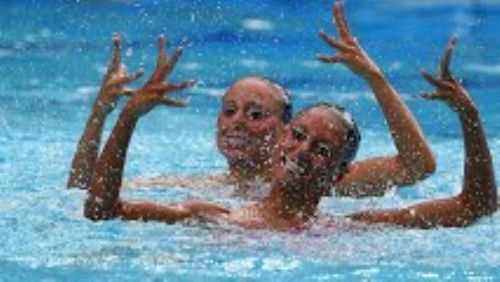
Sports
The 2016 Summer Olympic program
features 28 sports and a total of 41 disciplines and 306 events.
Aquatics,  Diving (8), Diving (8),  Swimming (34), Swimming (34),  Synchronized, swimming (2), Synchronized, swimming (2),  Water
polo (2), Water
polo (2),  Archery (4), Archery (4),  Athletics (47) Athletics (47)
 Badminton (5), Badminton (5),  Basketball (2), Basketball (2),  Boxing (13), Boxing (13),  Canoeing
Slalom (4), Sprint (12), Canoeing
Slalom (4), Sprint (12),
 Cycling,
BMX (2), Mountain biking (2), Road (4), Track (10) Cycling,
BMX (2), Mountain biking (2), Road (4), Track (10)
 Equestrian,
Dressage (2), Eventing (2), Jumping (2) Equestrian,
Dressage (2), Eventing (2), Jumping (2)
 Fencing (10), Fencing (10),  Field
hockey (2), Field
hockey (2),  Football (2), Football (2),  Golf (2) Golf (2)
 Gymnastics,
Artistic (14), Rhythmic (2), Trampoline (2) Gymnastics,
Artistic (14), Rhythmic (2), Trampoline (2)
 Handball (2), Handball (2),  Judo (14), Judo (14),  Modern
pentathlon (2) Modern
pentathlon (2)
 Rowing (14), Rowing (14),  Rugby
sevens (2), Rugby
sevens (2),  Sailing (10), Sailing (10),
 Shooting (15), Shooting (15),  Table
tennis (4), Table
tennis (4),  Taekwondo (8) Taekwondo (8)
 Tennis (5), Tennis (5),  Triathlon (2), Triathlon (2),  Volleyball,
Volleyball (2) Volleyball,
Volleyball (2)
Beach volleyball (2)
 Weightlifting (15), Weightlifting (15),  Wrestling,
Freestyle (12), Greco-Roman (6) Wrestling,
Freestyle (12), Greco-Roman (6)
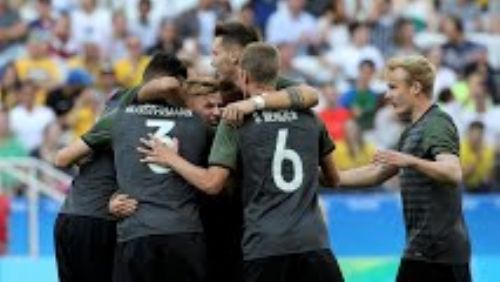
New sports
See also: 121st IOC Session
The two new sports for 2016 Olympic Games are golf and rugby sevens. There
were two open spots for sports and initially seven sports began the bidding for
inclusion in the 2016 program. Baseball and softball, which were
dropped from the program in 2005, karate, squash, golf, roller
sports, and rugby union all applied to be included. Leaders of
the seven sports held presentations in front of the IOC executive board in June
2009. 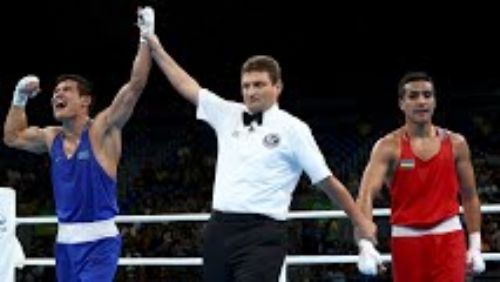
In August, the executive board initially gave its approval to rugby sevens—a
seven-player version of rugby union—by a majority vote, thus removing baseball,
roller sports, and squash from contention. Among the remaining three—golf,
karate, and softball—the board approved golf as a result of consultation. The
final decision regarding the remaining two sports was made on 9 October 2009,
the final day of the 121st IOC Session. A new system was in place at this
session; a sport now needed only a simple majority from the full IOC committee
for approval rather than the two-thirds majority previously required.
International Golf Federation executive director Antony Scanlon
said that the top players, including Tiger
Woods and
Annika
Sörenstam, would show their continued support of golf's Olympic
involvement by participating in the events. 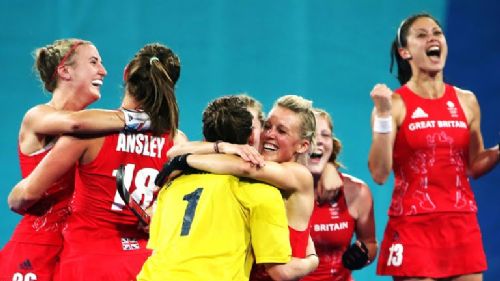
The International Sailing Federation announced in May 2012 that windsurfing would be replaced at the 2016 Olympics
by kitesurfing, but this decision was reversed in
November. The IOC announced in January 2013 that
it would review the status of cycling events, following Lance Armstrong's admission of using
performance-enhancing drugs and accusations that cycling's governing body had covered up doping.
In contrast to the exception during the 2012 Olympics, the International Gymnastics Federation announced that these Games will have a
gala event for gymnastics. 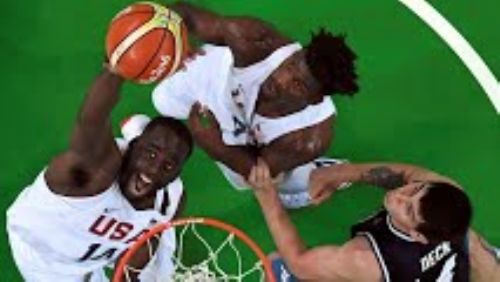
Participating National Olympic Committees
All 206 National Olympic Committees have qualified at least one athlete. The first three nations to qualify
athletes for the Games were Germany, Great Britain, and the Netherlands who
each qualified four athletes for the team dressage by winning medals in the
team event at the 2014 FEI World Equestrian Games. 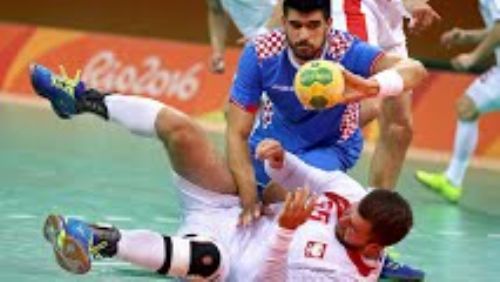
As host nation, Brazil has received
automatic entry for some sports including in all cycling disciplines and six
places for weightlifting events. The
2016 Summer Olympics are the first games in which Kosovo and South
Sudan are eligible to
participate. Bulgarian and Russian weightlifters
were banned from Rio Olympics for numerous anti-doping violations.
Kuwait was
banned in October 2015 for the second time in five years over government
interference in the country's Olympic committee. 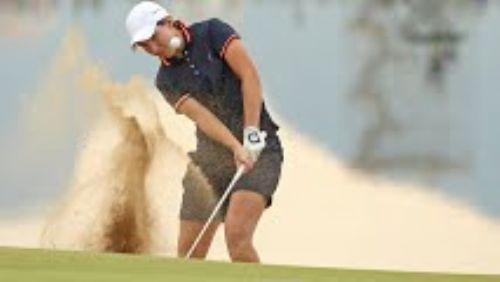
Refugee athletes
Main article: Refugee Olympic Team at the 2016 Summer Olympics
Due to the European migrant
crisis and other
reasons, the International
Olympic Committee (IOC)
will allow athletes to compete as Independent
Olympians under the Olympic Flag. In the previous Olympic
Games, refugees were ineligible to compete because of their
inability to represent their home NOCs.[60] On 2 March 2016, the IOC finalized
plans for a specific Refugee Olympic Team (ROT); out of 43 refugee
athletes deemed potentially eligible, 10 were chosen to form the team. 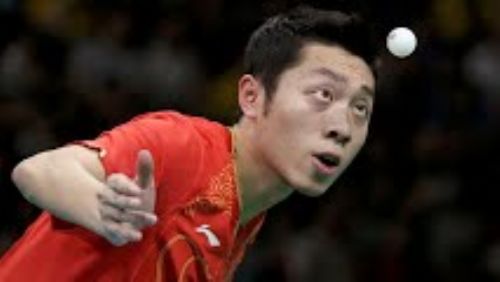
Independent athletes
Main article: Independent Olympic Athletes at the 2016 Summer Olympics
Due to the suspension of the National
Olympic Committee of Kuwait, participants from Kuwait were allowed to
participate under the Olympic Flag as Independent Olympic Athletes.
In November 2015, Russia was provisionally suspended from all
international athletic competitions by the International Association of Athletics Federations (IAAF) following a World Anti-Doping
Agency (WADA) report
into a doping program in the country. 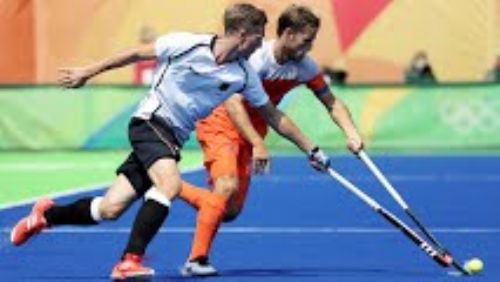
The IAAF announced that it would allow
individual Russian athletes to apply for "exceptional eligibility" to
participate in the Games as "neutral" athletes, if it were
independently verified that they had not engaged in doping nor in the Russian
doping program.
On 24 July 2016, the IOC rejected the
IAAF and WADA's recommendations to allow clean athletes to compete neutrally,
stating that the Olympic Charter"does not foresee such
'neutral athletes'" and that it was up to each country's National Olympic
Committee to decide which athletes would be competing.
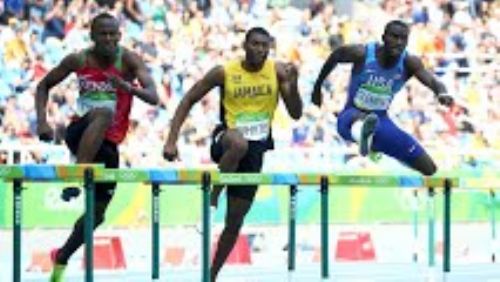
OLİMPİYATLAR MI.? EURO FUTBOL ŞAMPİYONASI MI.?
Kulağımıza ne kadar uzak bir tarih gibi gözükse
de gözümüzü açıp kapayıncaya kadar bu tarih gelmiş olacak.
Türkiye önemli bir karar aşamasında, UEFA patronu
Michael Platini İstanbul'daki konferansta "Ya Avrupa Futbol Şampiyonası
düzenleyeceksiniz ya da Olimpiyatları, böyle 2 büyük organizasyonu aynı anda
düzenleyemezsiniz" diye Türkiye'yi uyardı.
Gerçekten hangi organizasyon Türkiye'ye daha
faydalı olacak onu değerlendireceğiz.
Türkiye'nin hızlı büyüyen ekonomisi spora da
yansımakta, özellikle futbol sponsorluk pastasının en büyük dilimini almakta
ancak spor bu hızlı büyüyen ekonominin altında ezilmekte ve çarpık gelişim
göstermekte.
Bu demek değil ki gözümüz kapalı son sürat
aşağıya gidiyoruz, bir önceki seneye nazaran hatalarımızı biraz daha düzeltmiş
oluyoruz.
Voleybolda, basketbolda kulüplerimiz finallere ya
da yarı finallere çıksa da biz hala futbol ülkesiyiz ve bunu kırabilmek için de
Olimpiyatlar'ı almamız gerekiyor. Kalbimiz yine futbol için atacak belki ama
çocuklarımız o sporla tanıştıklarında aç kalırsın diye çocuğumuzu almak yerine
ona destek olacağız. 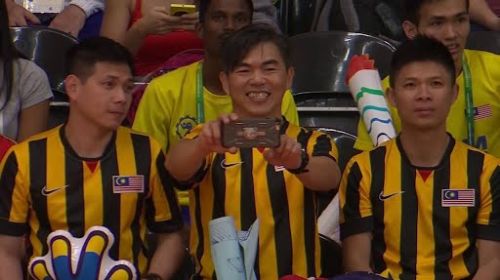
2020
İSTANBUL OLİMPİYATLARI
İlk olimpiyat 1896'da Atina'da düzenlendi, o
günden beri her 4 senede bir Olimpiyatlar düzenleniyor, sadece 3 kere dünya savaşları
yüzünden iptal edildi.
İtalya'dan Amerika'ya, Güney Kore'den Meksika'ya
17 farklı ülke bu organizasyonu düzenledi ve bu sene Londra 3. kez bu
organizasyonu düzenliyor.
Ülkeler bu organizasyonu bir fırsat olarak
görüyor ve organizasyon alındıktan sonra tüm güçleriyle oyuncu yetiştirmeye
odaklanıyor,
önlerinde dolu dolu 7 seneleri oluyor ve eğer Türkiye bürokratik engellere
takılmaz ise eğitime de ilkokullarından başlarsa, gelecek nesillere sporcu
ruhunu yani olimpiyat ruhu aşılanmış nesiller yetiştiririz.
İnsana sevgi, sporcuya saygılı, dürüstçe mücadele
eden ve ne pahasına olursa olsun rakip oyuncuyu sakatlamaktan kaçınan kişi
ancak o zaman olimpiyat ruhunu alabilmiştir.
AVANTAJLAR:
- 200'den fazla ülkeden katılım olacak
- 28 spor dalından oyuncular yetişecek
- 11 binden fazla sporcu yarışacak
- 2 milyon kişi tribünlerden, 2 milyardan fazla
insan televizyonlarından takip edecek
- 17 gün boyunca insanlar bir çok farklı spor
dalı takip edebilecek.
- Gelecek nesillerin sağlıklı gelişimini güvence
altına alacak
- Dünyanın en iyi sporcuları yarışacak
DEZAVANTAJLARI:
- 20 milyar Dolar yatırım yapılmalı
- Eğitmenlerin kalitesi ve antrenörlerin genelde
eşleri olması
- Türk milleti olarak organizasyonları hep son
dakikaya bırakmak
- Oyuncu yetiştirmek yerine devşirmeye
yönelebilinir 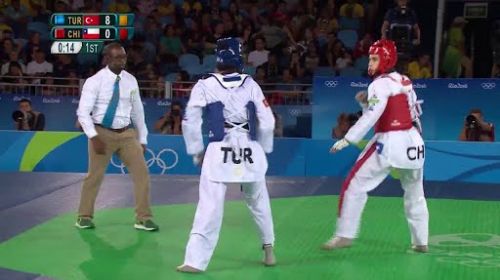
2020
AVRUPA FUTBOL ŞAMPİYONASI:
Avrupa Uluslar Kupası olan başlayan bu turnuva
1968 yılında mevcut ismini aldı. İlk olarak 1960'da Fransa'da düzenlendi.
Bu kupayı müzesine ilk götüren, Yugoslavya'yı finalde
2-1 yenen Sovyetler Birliği oldu. Avrupa Futbol Şampiyonası'nın en başarılı
ülkesi kupayı müzesine 3 kere götüren Almanya'dır. Ülkemiz ilk olarak 1996'da
bu turnuvaya katıldı ve ne yazık ki gol dahi atamadan elendi. 2000'de çeyrek
final, 2008'de ise yarı finale çıkma başarısı gösterdi. Ülkemiz katıldığı
turnuvalarda başarılı bir performans gösterse de, turnuvalara katılımda
istikrarsız oluşumuz Türk futbolunun prestijini Avrupa'da sarsıyor.
Ülkemizin bir futbol ülkesi olması en büyük
avantajımız. Turnuva düzenlemek için 8 stada sahip olunmalı. Final için kullanılacak stat en az 50 bin,
diğerleri ise minimum 30 bin kapasiteli olmalı. Bir şehirden de maksimum 2
stada izin veriliyor.
Bu sene turnuva düzenliyor olsak 3 stadımız ön
plana çıkıyor;
Şükrü Saraçoğlu Stadyumu, Türk Telekom Arena, Olimpiyat Stadyumu. TT Arena ve
Olimpiyat Stadyumu bir adım öne çıkıyor ancak o zaman da İstanbul'un en önemli
özelliğini İstanbul Boğaz'ını ön plana çıkartamamış oluyoruz.
Şükrü Saraçoğlu Stadyumu, UEFA tarafından veto
edilmişti fakat Şükrü Saraçoğlu'nun çevresini istimlâk ederek UEFA
standartlarını yakalayabiliriz. 2020'ye kadar İnönü Stadı'nın da yenileneceğini
ön görürsek alternatiflerimiz çoğalıyor.
Kalan 6 stat ise
Antalya-İzmir-Eskişehir-Ankara-Bursa-Kayseri'den seçilecek. Bu listeye Adana'yı da ekleyebiliriz. Ancak şu
anki mevcut siyasi irade Türk futbolunun en önemli sorunlarından biri olan
statlara büyük önem vermekte ve tüm Türkiye'de butik statlar yapmakta. 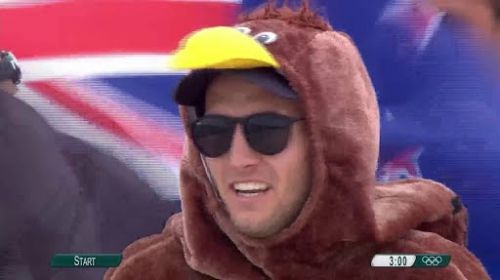
AVANTAJLAR:
- Statlar yapılacak ya da yenilenecek
- Futbol heyecanı tüm ülkeye yayılacak
- Futbol reformları yapılacak
- 1,5 milyon kişi tribünlerden takip edecek
- Olimpiyatlardan daha fazla turist getirecek
- 24 gün sürecek
- Avrupa'nın en iyi takımları gelecek
- 4 milyardan fazla insan turnuvayı televizyonlarından
takip edecek
DEZAVANTAJLARI:
- Bir şehirde azami 2 stat
- Maliyeti 2 milyar euro
- Zaten bir futbol ülkesi olmamız
- Olmazsa olmaz değil
DEĞERLENDİRME:
Zaten bir futbol ülkesiyiz, siyasi irade sayesinde, Türk
futbolunda modern statlarda ve zeminlerde maçlar oynanmakta, Avrupa Futbol Şampiyonası ülkemiz için çok da büyük artılar
kazandırmayacak. Olimpiyatları doğru kullanabilirsek her yönden ülkemize büyük
katkılar sağlayacak, ancak Trabzon'da düzenlenen Karadeniz Oyunları gibi
ya da Erzurum'da düzenlenen Kış Olimpiyatları gibi olacaksa hiç
yeltenmeyelim.
Teşekkürler, Diğer yazılarım için; yavuzkula.blogspot.com
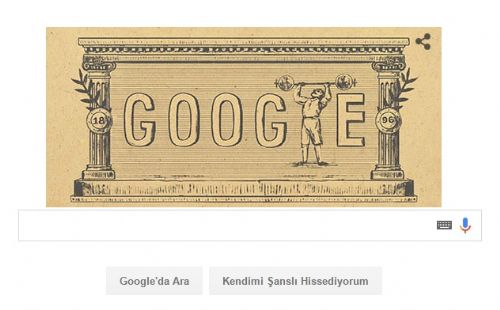
Ökkeş Bölükbaşı, Temmuz.2016
– www.medyagunebakis.com/
http://www.medyagunebakis.com/haber_detay.asp?id=9032&menuid=66

Ökkeş Bölükbaşı, Temmuz.2016
– www.medyagunebakis.com/
Metni | 














































































